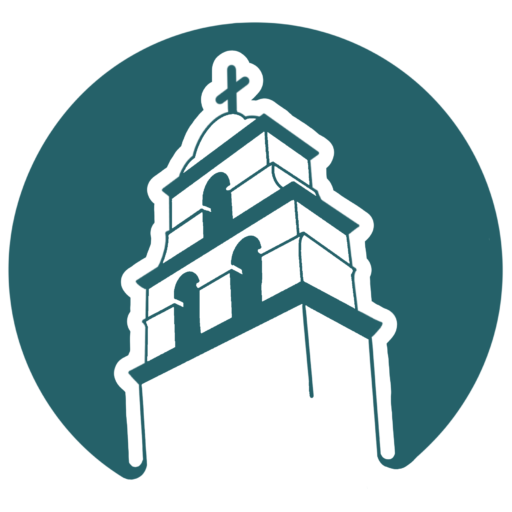During the American Revolution, a man in civilian clothes rode past a group of soldiers who were busy pulling out a horse carriage stuck in deep mud. Their officer was shouting instructions to them while making no attempt to help. The stranger who witnessed the scene asked the officer why he wasn’t helping. With great dignity, the officer replied, “Sir, I am a Corporal!” The stranger dismounted from his horse and proceeded to help the exhausted soldiers himself. When the job was completed, he turned to the corporal and said, “Mr. Corporal, next time you have a job like this, and don’t have enough men to do it, inform your commander-inchief, and I will come and help you again.” Too late, the proud Corporal recognized General Washington. Washington understood that those who aspire to greatness or rank first among others must serve the needs of all . Where did Washington learn such leadership skills? I have no doubt he learned them here, in these words of Jesus: “Whoever wants to become great among you must be your servant.” The young corporal had these words modeled for him by the man at the top. Jesus’ disciples, likewise, receive from their leader a picture of servanthood.
———————————————————————-
Nobel prizes are awarded every year in literature, economics and science. People who have made outstanding contributions in these fields are given due recognition for their achieved greatness. Excellence is recognized in the sports world, too. For example, when Pete Rose surpassed Ty Cobb’s record number of hits in 1985, he assured himself a place in baseball’s Hall of Fame. We all aspire to greatness in some form or another. It is a desire which our Lord addresses in today’s gospel. But if we look deeper into enduring examples of greatness, we see that the Lord is right. Alexander the great was a remarkable leader because he stood by his men in battle. Albert the Great was an intellectual giant because he disciplined himself for study. Beethoven was a master composer because he struggled long hours to get the right note. A lbert Cylwicki in ‘His Word Resounds’ (Quoted by Fr. Botelhoft.
———————————————————————-
It may sound unbelievable, but it is true that Asia’s first Nobel Prize winner in Literature (1913ft, Rabindranath Tagore, was behind the three great national anthems of three nations, viz. Bangladesh, India and Sri Lanka. He was also the first non-westerner to win the Nobel Prize in literature. He did so in 1913. He wrote this short poem: I slept and dreamt that life was Joy; Then I awoke and realized that life was Service. And then I went to work – and, lo and behold, I discovered that Service is Joy.
Fr. Joseph Antony Sebastian
St. Joachim Church
21255 Hesperian Blvd Hayward, CA, USA 94541
Office Phone: 510 783 2766
*****************************************************
Durante la Revolución Americana, un hombre vestido de paisano cabalgaba por un grupo de soldados que estaban ocupados sacando una carreta atascada en el barro profundo. Su oficial estaba gritando instrucciones sin hacer ningún intento de ayudarles. El extranjero quien fue testigo de la escena le preguntó al oficial por qué no ayudaba. Con gran dignidad, el oficial respondió: “Señor, soy un Cabo!” El extraño desmontó de su caballo y procedió a ayudarles a los agotados soldados. Cuando el trabajo terminó, se volvió hacia el cabo y dijo, “Sr. Cabo, la próxima vez que usted tenga un trabajo como este y no tenga suficientes hombres para hacerlo, informe a su comandante, y vendré a ayudarle otra vez.” Demasiado tarde, el cabo orgulloso reconoció al General Washington. Washington entendió que quienes aspiran a la grandeza o son primero entre otros deben servir las necesidades de todos. ¿Dónde Washington aprendió tales habilidades de liderazgo? No me cabe duda que lo aprendió aquí, en estas palabras de Jesús: “quien quiera ser grande entre vosotros deberá ser vuestro siervo.” El joven cabo tenía estas palabras modeladas para él por el hombre en lo alto. Los discípulos de Jesús, además, reciben de su líder una imagen de servicio.
———————————————————————
Premios Nobel se conceden cada año en literatura, economía y ciencia. A personas que han hecho contribuciones destacadas en estos campos se les da debido reconocimiento por su grandeza alcanzada. Excelencia es reconocida en el mundo del deporte, también. Por ejemplo, cuando Pete Rose superó el número récord de Ty Cobb en 1985, aseguró un lugar en el Salón de Fama del béisbol. Todos aspiramos a la grandeza de alguna forma u otra. Es el deseo que nuestro Señor se refiere en el Evangelio de hoy. Pero si nos fijamos más profundamente en los ejemplos de grandeza, vemos que el Señor tiene razón. Alejandro Magno fue un notable líder porque estuvo al lado de sus hombres en la batalla. Albert el Grande fue un gigante intelectual porque él mismo era disciplinado para el estudio. Beethoven fue un maestro compositor porque luchaba largas horas hasta conseguir la nota adecuada. Albert Cylwicki en ‘Su Palabra Resuena’ (citado por el P. Botelhoft.
———————————————————————
Puede sonar increíble, pero es cierto que el primer Premio Nobel de Asia de literatura (1913ft, Rabindranath Tagore, fue detrás de los tres himnos grandes de las tres naciones, como Bangladesh, India y Sri Lanka. También fue el primer occidental de ganar el Premio Nobel de literatura. Lo hizo en 1913. Escribió este poema corto: Yo dormía y soñaba que la vida era Alegría; Entonces desperté y me di cuenta de que la vida era Servicio. Y luego me fui a trabajar – e increíblemente, descubrí que el servicio es Alegría.
Fr. Joseph Antony Sebastian
St. Joachim Church
21255 Hesperian Blvd Hayward, CA, USA 94541
Office Phone: 510 783 2766
*****************************************************
